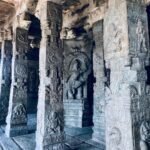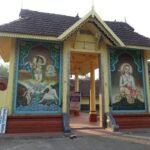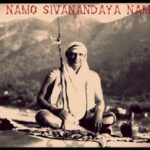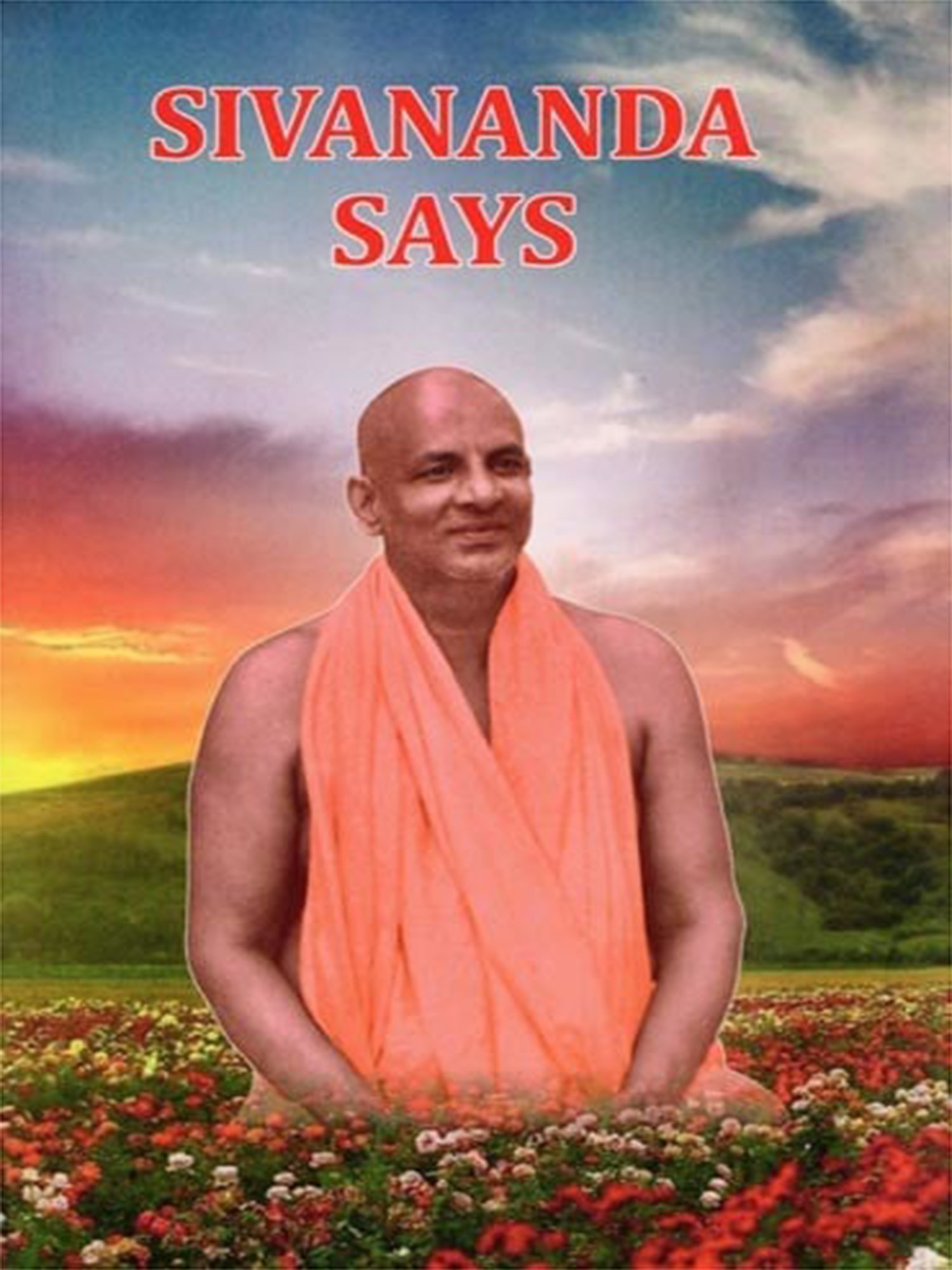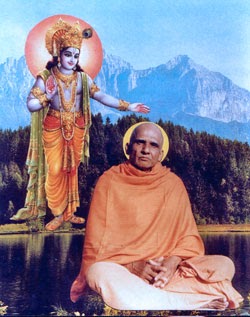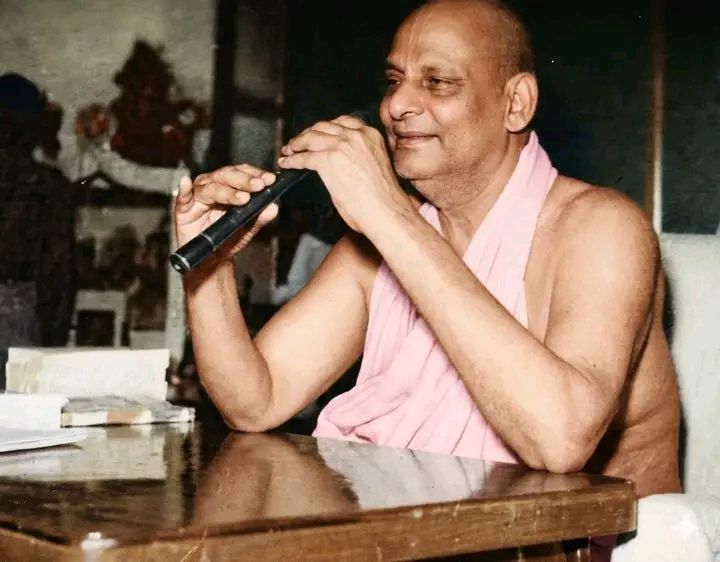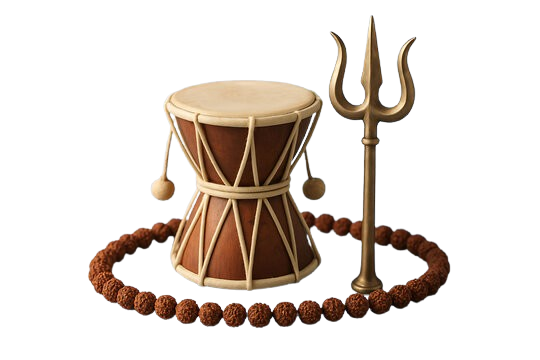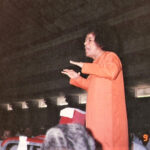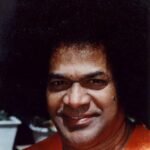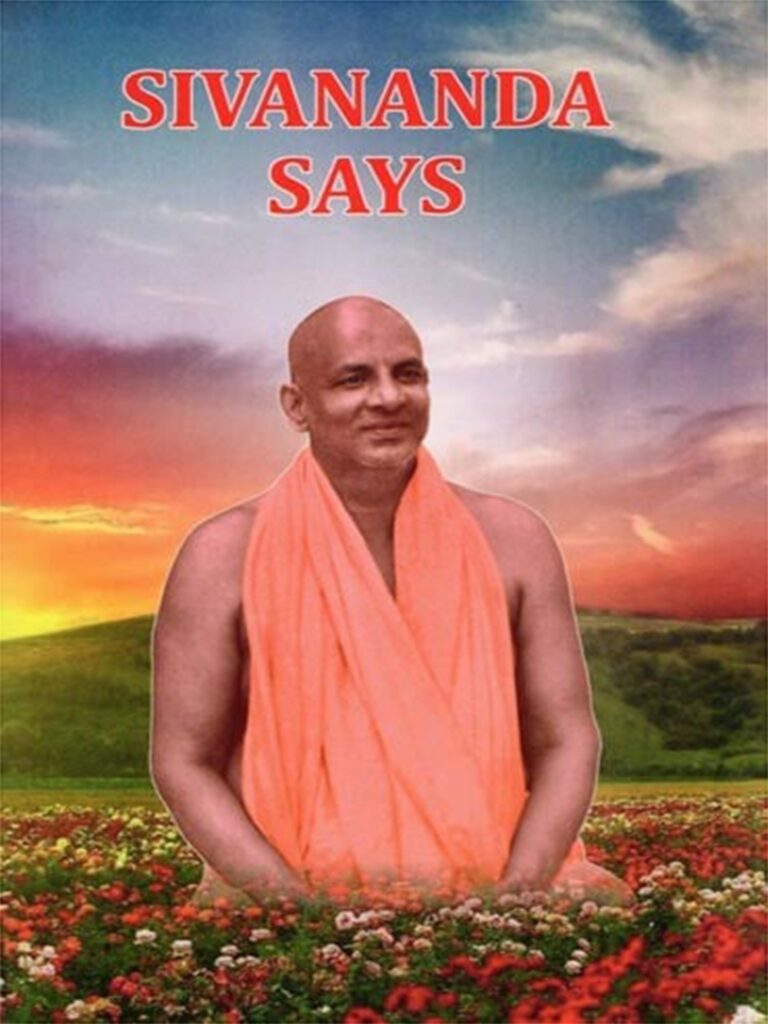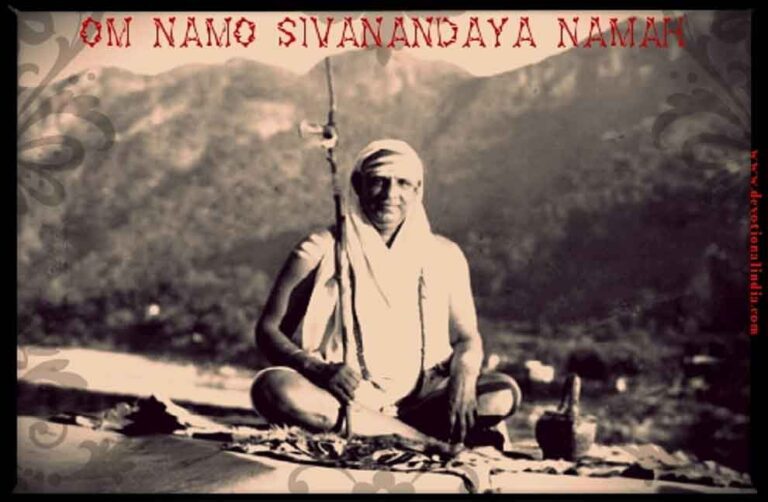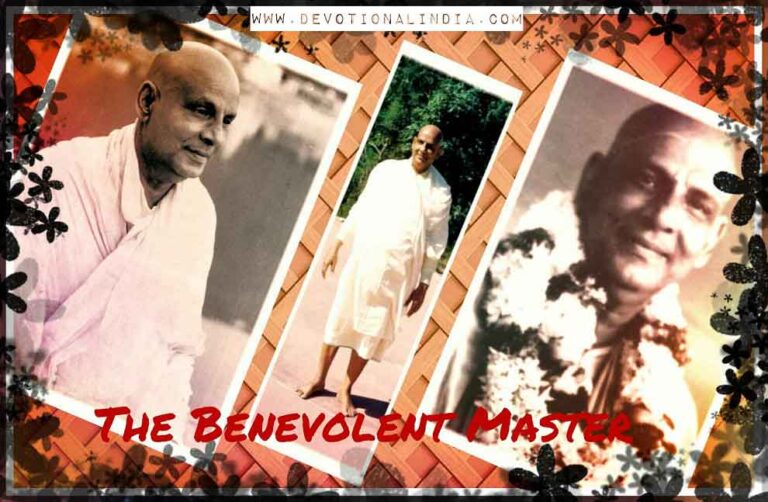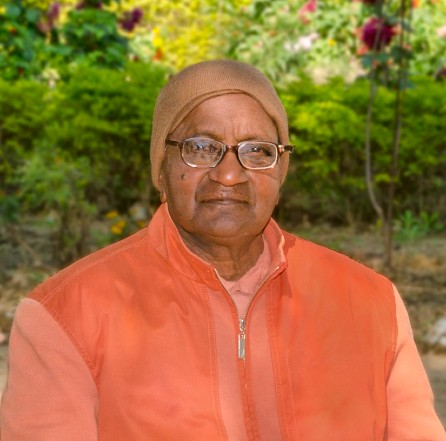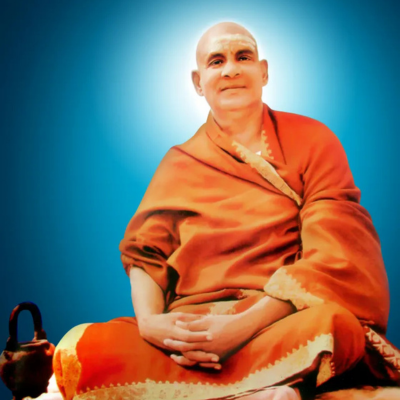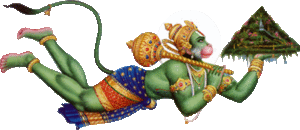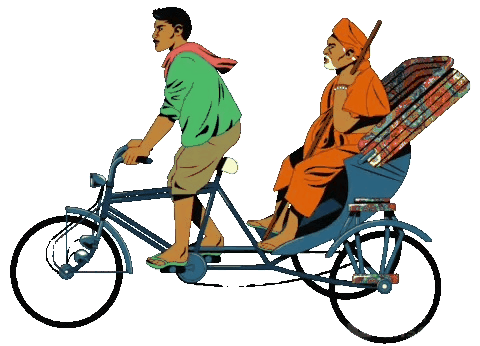CONVERSATIONS WITH SAI Satyopanishad
Satyopanishad – part one
Direct Directions from the Divine

Responding to positive responses from many readers to this section who prefer the “question-answer” format in finding answers to issues connected with spirituality and personal growth, from this issue we serialize another popular book, this time by Prof. Anil Kumar, entitled “Satyopanishad.” Published in two parts by the author, this revealing dialogue with the Divine has topics as wide-ranging as the origin of evil, the goals of human life, aspects of God – embodied and formless – to price hikes, women’s liberation, vegetarianism and the generation gap.
Unlike Dr. Hislop’s book, the 270 questions in these volumes are neatly grouped and presented in nice chapters under three parts. We start in this issue with the first chapter of the first part called “The India Eternal.”
CHAPTER 1 – THE INDIA ETERNAL
rof. Anil Kumar (AK): Swami! India (Bharat) is the land of religion and spirituality. All the incarnations have taken birth in Bharat. What is the reason behind this?
Bhagavan: Bharat is yogabhumi, the land of spirituality. Bharat is punyabhumi, the sacred land. Bharat is karmabhumi, the land of sacred activity. Bharat is tyagabhumi, the land of renunciation. Here saints, sages, seers, aspirants, seekers and devotees pray to God to enjoy His proximity.
Here is an illustration. You asked why Bharat alone has always been the birthplace of the incarnations. You know that the train has an engine in the front with several carriages connected to it. The power or energy generated there in the engine pulls the carriages forward. Where do you find the driver? Naturally, he sits in the engine monitoring the train, does he not? Similarly, in the train of the world, Bharat is in the position of an engine and the carriages are the several countries attached to it.

In the great epic, the Mahabharata we find Arjuna and Bhima always following Yudhisthira. Here, Arjuna stands for intelligence, while Bhima symbolises physical strength. Now, Bharat is in the position of Yudhisthira. America is Arjuna, while Russia is Bhima. Just as you find Bhima and Arjuna obeying the command of Yudhisthira, America and Russia should follow Bharat.
n the very name “Bharat” we have three letters. (Written in Telugu, “Bharat” comprises three letters). Bha, the first letter stands for bhava or feeling; ra, the second signifies raga, tune or melody; and ta, the third indicates tala or beat. Thus, Bharat is the country where the glory of God is sung with proper feeling, melody and right rhythm. This country has another name “Hindudesam” which means a country that shuns violence, ‘Him’ means, himsa or violence and ‘du’ refers to “dura” or shuns. For these reasons God has chosen to incarnate or descend in human form in Bharat.
AK: Swami! We find people of every religion following a specific sacred text and a particular path. But in Sanathana Dharma (ancient Indian practice), we have numerous paths, texts, and procedures such as dualism, qualified non-dualism and nondualism, the nine paths of devotion, the six Darsanas, the four Vedas, numerous Sastras (scriptures), and so on. How are we to understand these and practice the principles of Sanathana Dharma?
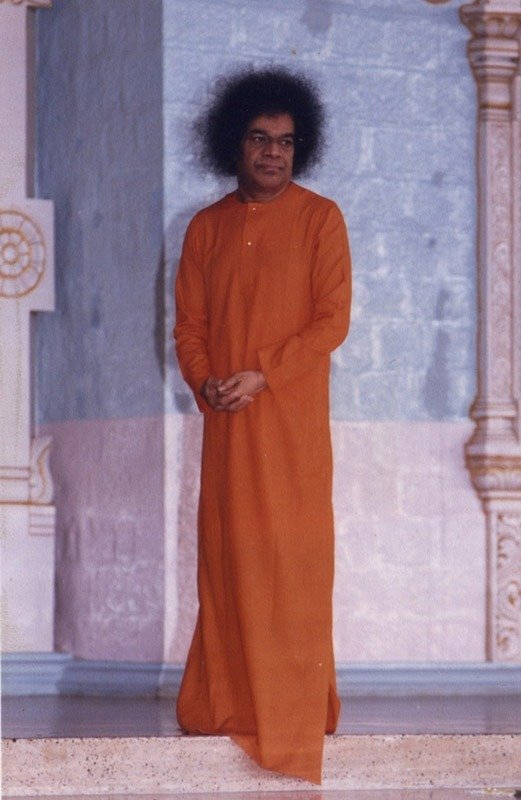
Bhagavan: Sanathana Dharma is the most ancient spiritual way of life. Its diversity matches the spectrum of human behavioral tendencies, temperaments and mental attitudes. It is practical and confers divine experiences.
A small example. You buy a piece of cloth and give it to a tailor to make a suit for you. The tailor will get your suit ready according to your measurements, does he not? You cannot wear a dress made for someone else.
Another example. You may know the nadasvaram (the South Indian musical instrument required to be played on every auspicious occasion). To maintain srti or rhythm by way of an accompaniment, one person plays an instrument in the same way all through. On the other hand, with nadasvaram you can play any number of ragas or tunes. Sanathana Dharma is like the nadasvaram.
Yet another example: Whatever be the combination of optional subjects you may take in Science during your undergraduate programme, be it ‘M.P.C.’ (Maths, Physics and Chemistry) or ‘C.B.Z.’ (Chemistry, Botany and Zoology), you get a B.Sc. degree. Similarly, in the university established by Sage Vyasa, you can opt for any course like the Sastras, the Vedas, the Upanishads, etc. This is the significance of our ancient Sanathana Dharma, which gives ample freedom for you to select and follow.
Here is one more example: A pharmacist and a cafe owner had a headache on the same day. Seeking relief, the pharmacist went to the cafe for a cup of coffee, and the cafe owner to the medical shop for a tablet. So, one has faith in a cup of coffee while the other trusts a tablet. In the same way, you should follow the spiritual path you believe in, and the text that is convincing and appealing to you.
AK: Swami! Muslims go to a mosque every Friday to pray (namaj), and Christians go to a church every Sunday. Then, how is it that Hindus do not meet in a temple like other religious groups?
Bhagavan: You are wrong if you think Hindus should. They are not required to specially meet on a specific day like others. Why? Every Hindu has a puja room or an altar in his home particularly meant for worship. He prays there every day. So there is no need for him to assemble for mass prayer or to pray on specific days like people belonging to other religions.
AK: Swami! Since God is omnipresent and omniscient, do we need temples and should we go on pilgrimage to holy places like Shirdi, Puttaparti, Tirupati, and so on?
Bhagavan: This is a foolish question. You are exhibiting your ignorance and your ‘fashionable’ way of thinking which, more often than not, is perverted. There is no relationship between what is said and what is experienced. You say that God is everywhere.
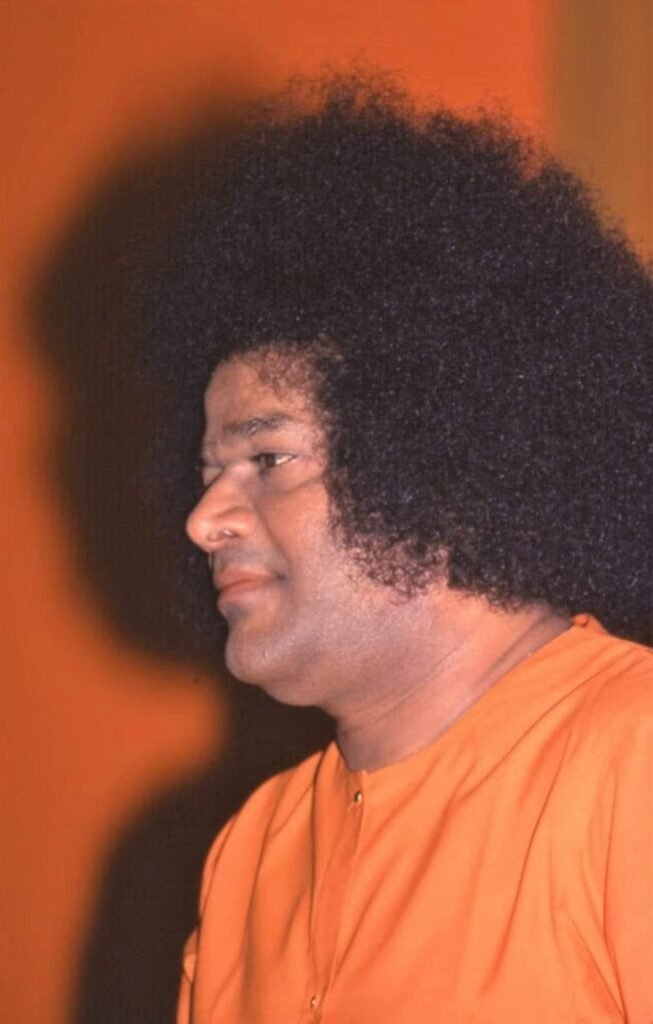
But it is merely an expression, vocal and verbal. Do you really have strong faith that God is present everywhere? Do you have that experience of the divinity, which is all pervasive? You are simply speaking like a parrot.
Here is a simple example. Blood circulates throughout the body of a cow. But you can draw milk only out of the udder! You can’t squeeze the ear or twist the tail of a cow to get its milk, can you? Therefore, the all pervading God can be visualised and experienced in a temple and at a holy pilgrim centre.Bhagavan: There is significance undoubtedly. Why did they choose forests for penance? Here is an example. Suppose an exhibition is organised in a city. Naturally, the stalls there and the articles kept there for sales attract you. The music, eatables, clothes, etc., draw you. The exhibits attract your senses since you find them right before you. But, in a forest, there is nothing to attract or distract your attention.
Solitude helps you to maintain the inner peace and tranquility needed for meditation. It provides a congenial atmosphere for spiritual life. So, saints and sages always did penance in forests. In other words, “forest” is “for rest” spiritually.
AK: Swami! We don’t find any understanding between any two persons, but only mutual bickering and differences. We hardly find any unity or brotherhood between man and man. What is the reason?
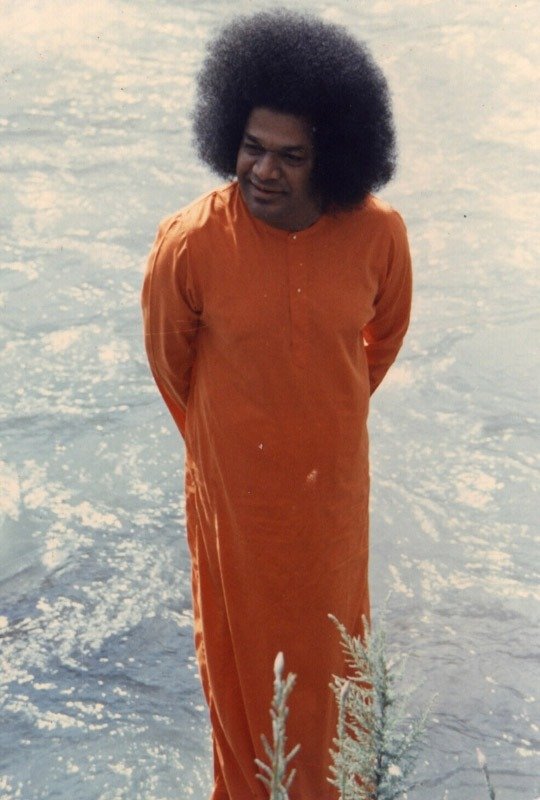
Bhagavan: There is one thing you should clearly know when you think of unity and differences among people. What is the reason? Today there is no understanding between any two persons. The absence of understanding is the main cause of all the conflicts, enmity, and differences.
Therefore, people do not adjust with others. Adjustment is possible only when there is understanding. But, today you are moving in the opposite direction. You think that you can adjust first and then understand each other. But, that is wrong. You must first understand and adjustment then becomes easy.
Here is a small illustration. When there is perfect understanding between you and your wife, she does not mind if you return home late from your office. She pities you and sympathises with you. With all her concern and love, she brings you a cup of coffee. But, if by any chance, there is a slight misunderstanding, and your return from office is delayed even by five minutes, there will be a civil war at home.
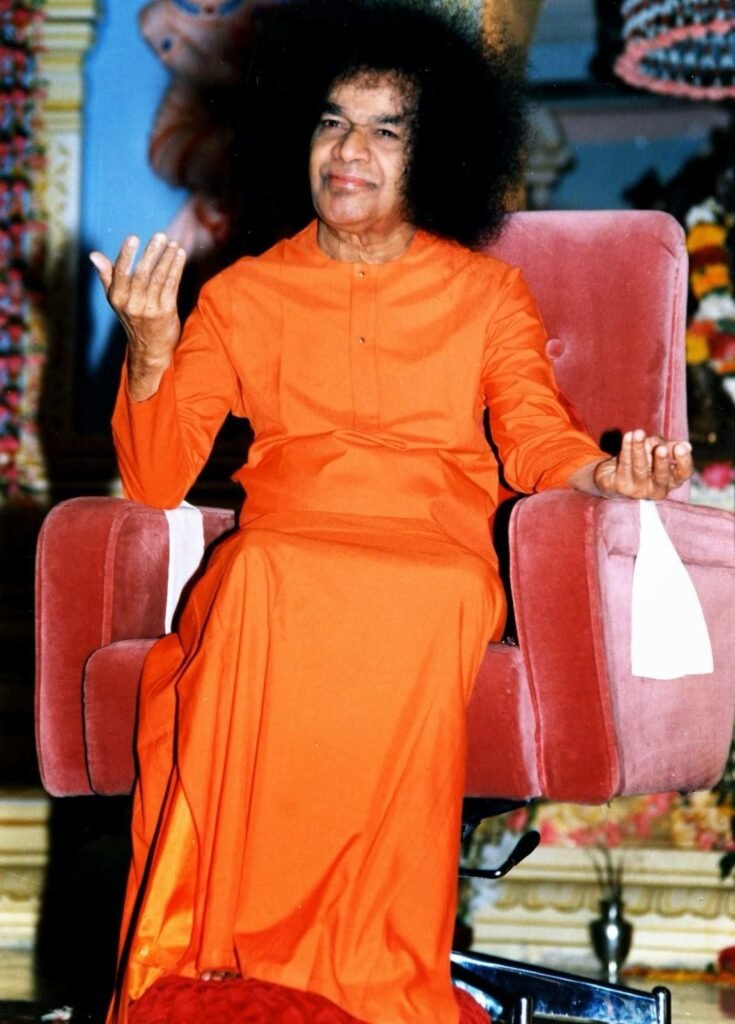
AK: Swami! Hindus are criticised for worshipping idols, trees, etc. Many think that this is all superstition and blind faith. What do you feel about this, Swami?
Bhagavan: Bharat (India) is the spiritual centre of the world. This is the country that practised, preached and propagated that divinity exists in all the living and the nonliving, right from an atom to the entire cosmos. You will notice that here, in this country, putta (anthill), gutta (mountain), chettu (tree) and pitta (bird) are objects of veneration and worship.
An anthill is worshipped as the abode of Lord Subrahmanya, a bird is respected as the vehicle of Lord Vishnu, a mountain is spiritually important as it is viewed as Govardhana lifted by Lord Krishna, and a tree is worshipped as the asvatthavriksa. All objects are divine according to our scriptures. This is not superstition.
This is not in any way blind faith. Sanathana Dharma wants us to view, feel, and experience divinity everywhere. This is the spiritual path. This is the highest and noblest experience.
Why? Misunderstanding is the cause of her inability to adjust. It makes her put questions like: “Where have you been till now? Where did you go? With whom did you spend the time?” etc. So understanding is very necessary for proper adjustment. Many problems of society today can be solved if this is realised.
Satyopanishad – part Two

Dear reader, responding to positive responses from many readers to this section in H2H where we have a dialogue with the Divine, after we completed serializing Dr. John Hislop’s “Conversations with Bhagavan Sri Sathya Sai Baba” in January 2008 (click here to find links to the entire series), we started Prof. Anil Kumar’s “Satyopanishad” from the next month.
This too is in the “question-answer” format that many devotees prefer and has answers from Bhagavan on topics as wide-ranging as the origin of evil, the goals of human life, aspects of God – embodied and formless, to price hikes, women’s liberation, vegetarianism and the generation gap of the present times.
Published in two parts by the author, these volumes have 270 questions in all, which are neatly grouped under separate chapters. In this issue, we continue with the first chapter called “The India Eternal” from where we stopped in the February issue.
CHAPTER 1 – THE INDIA ETERNAL
Anil Kumar (AK): Swami! Kindly tell us what is to be done in our country now?
Bhagavan: You don’t have to protect your country now. You should protect and uphold Sathya and Dharma (Truth and Righteousness). You should of necessity follow these twin principles. They will protect the entire universe. You should develop love for the universe in all its vastness and magnitude.
Love all and serve all. You should rise above the narrow limits of caste, creed and nationality. You should believe in the brotherhood of man and the fatherhood of God. You should never waste time. Gratitude must be expressed by rendering service to the society in which you are born, grew up, made money and earned reputation.
Cultivate human values and realise the divinity within you. Politics without Principles, Commerce without Morality, Science without Humanity, and Education without Character are not only useless, but also dangerous. You should be a perfect, ideal man. You are from God. You are the spark of the Divine. Hence, your qualities should be daiva, divine and not dayyam, demonic. You say, “I am a human being”.

If you place a ceiling on your desires, you will be happy. He who has many desires is the poorest man. The man with contentment is the richest man. Guna, virtue is more important than ana, coin.
You should know the purpose and the goal of life. Life is not for eating, drinking, and sleeping alone. Animals also do the same. What is your specialty, then? God has gifted you this life in order that you may know, experience and realise the divinity within you. Morality and integrity are very important. Nitiye jati, morality, indeed, is national character. A Telugu verse runs as follows:
Adivadalitivo kotikante hinudavu,
Jati gauravamuni tipai nilucunu,
Niti kalugu jati nijamaina jati.
Without character, you are worse than a monkey. The prestige of a nation depends on its morality. That nation alone deserves to be called a nation when it truly maintains high standards of morality and individuality.
You should always remember these three important points. The first is: do not trust the way of the world. Sometimes it not only deludes and distracts you, but betrays you also. The second is: never forget God who is always with you, in you, above you, below you. Nay, you are God. The third is: do not fear death, as it is sure to take place. In fact, death is the dress of life. Follow the sacred path in life by maintaining unity in thought, word and deed.
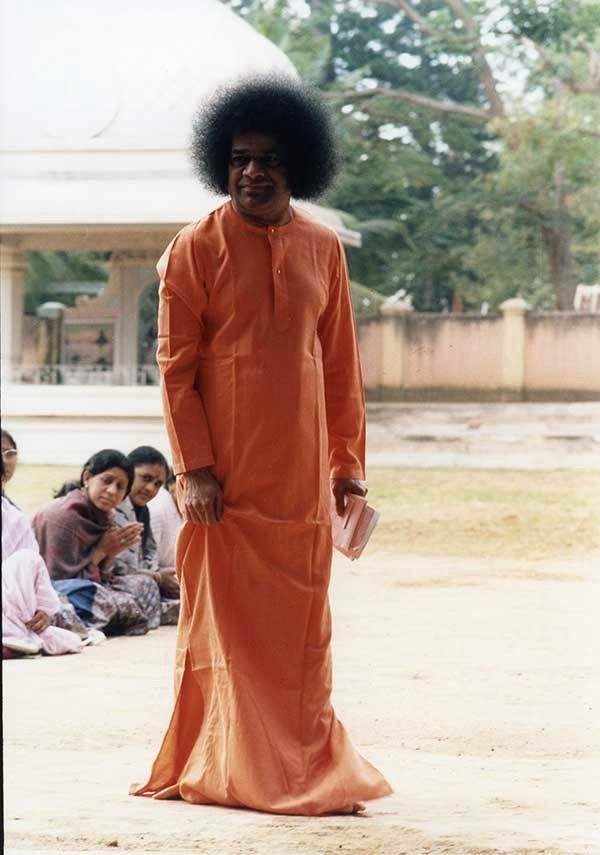
here is one more thing I want you to note. Open your heart and close your mouth. Today, people speak what they don’t really mean; their hearts are full of jealousy, pride, envy, and what not.
You should share your precious knowledge and valuable experience with others. You should share Sai’s message with others. Have faith in yourself first and then you can trust God. The real cause of the problem of the present day lies here. You don’t have faith in yourself. You have no self confidence.
Consider grama seva, rural service as Rama Seva, service to God. Explain clearly to the villagers issues like hygiene, health, cleanliness, and organise medical camps. Ensure to everyone water supply, especially drinking water supply. Tell them about the evil effects of smoking and drinking. Help them to get rid of these bad habits.
If you work and serve mingling closely with the local people, in course of time, they will be able to work independently and become self reliant. Service to man is service to God. Service is a greater and higher spiritual path than meditation, penance, worship and chanting. Serve the poor and the needy.
Don’t be selfish. Don’t give any scope for jealousy, pride, and attachment. Develop virtues like devotion, adherence to truth, discipline, broadmindedness, and never yield to pomp, pride, and egoism. Bad qualities are like tigers while noble qualities are like cows. Will tigers allow cows to live?
AK: Swami! Kindly tell us about Vasishtha and Visvamitra, the two sages who are very prominent in the Ramayana?
Bhagavan: In ancient days, kings were always guided by their preceptor. They consulted him on all major issues. That was how Truth and Righteousness were maintained and upheld. History shows instances when kings approached their gurus for blessings and guidance, and thus became great. You know how King Krishnadevaraya was guided by his mentor and preceptor, Vidyaranya, and Emperor Sivaji by Samartha Ramadas.
Rama and Lakshmana followed Sage Visvamitra, learnt archery from him and killed demons like Khara and Dushana who were obstructing and desecrating Vedic rituals in the forest. Thus, Visvamitra was instrumental in demonstrating to the world at large the valour and expertise of Rama and Lakshmana. Visvamitra also taught Rama the most sacred mantra, the Gayatri. He was also responsible for the divine wedding of Sita and Rama, which was in essence a union of prakriti, matter and purusha, energy, the Absolute One. He was and is the mitra, friend, of visva, the entire Universe, and so the name of the sage has been so apt and befitting.
Visvamitra was the one who gave Gayatri Mantra to mankind. As he was growing in spiritual stature, he wished to be called Brahmarshi by Vasishtha. He was always competitive and envious of Vasishtha to the extent of even resolving to kill him. On a full moon day he planned to kill Vasishtha and was holding in his hand a big stone to be thrown on his head. Meanwhile, he heard Vasishtha tell his wife Arundhati how bright and beautiful the moonlight was and how it was equal to the power of the penance of Visvamitra. His mind immediately changed and he fell at the feet of Vasishtha and the latter addressed him as Brahmarshi since he had conquered his ego.
AK: Swami! Among the sages, how is Valmiki noteworthy?
Bhagavan: The Ramayana was both composed and recited during the time of Rama’s incarnation. As for the great sage and ascetic Valmiki, besides being a contemporary of Rama, he, as the author of the Ramayana, is the very first poet.
Having completed the Ramayana, he thought deeply about popularising such a great work. At that juncture, Lava and Kusa came forward and took a vow in the presence of Valmiki and other distinguished sages that they would themselves sing the Ramayana and offer its nectar to people all over the world.
Thus, Valmiki has the unique distinction of composing the divine Ramayana as Rama’s contemporary and having it sung in Rama’s presence. Valmiki proclaimed to the whole world the ideals and divinity of Rama, the protector of the world and the inspirer of His muse. Thus, it was only from the Tretayuga that the divinity within humanity began to shine forth.
The purpose of the incarnation of Rama was to pass on to mankind the whole duty of man. What is happening today is exactly the same phenomenon. You would have noticed how in the present avatar too, biographies are written by contemporaries, and the Divinity is acknowledged, worshipped, experienced, and celebrated all over the world. That all this is happening during the time of the incarnation is another parallel to Rama’s descent. The same Ideal! The same Love! The same Message, viz., the practice of Sathya and Dharma.
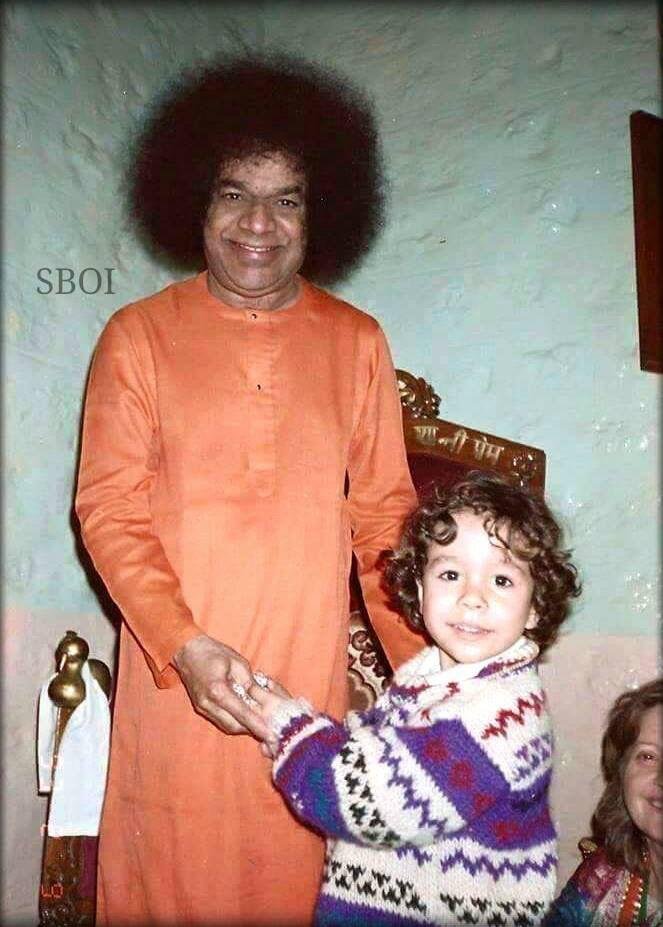
AK: Swami! We heard about King Dasaratha, the yoga called ‘putrakameshti’, and so on. Kindly tell us something about King Janaka.
Bhagavan: Janaka was a Rajayogi, a man of great wisdom, utterly devoid of the sense of the body. Therefore, he came to be known as videha, one without attachment to the body. As the daughter of that King, Sita came to be known as Vaidehi. Janaka was an ideal king possessing immense devotion to the preceptor, extensive knowledge of the Sastras, and the spirit of renunciation. He performed Sita’s marriage as his bounden duty. Later on, Rama left for the forest along with Sita and Lakshmana. Though their stay in the forest stretched into years, Janaka never set foot in the forest. Such was Janaka’s abounding wealth of jnana and vairagya (wisdom and renunciation).
AK: Swami, we hear that Adi Sankara died at a young age. What could be the reason?

Bhagavan: It is true that the founder of the doctrine of advaita, nondualism, died young. He wrote commentaries on three important sacred texts known as Prasthanatraya, viz. the Upanishads, the Brahmasutras, and the Bhagavadgita. Besides, emphasising jnana (the path of knowledge), he composed a large number of hymns on bhakti (devotion). He traveled all over the country and established pithas – centres of worship and spiritual learning. He symbolises Sanatana Dharma, the ancient, timeless spiritual culture of this land.
Adi Sankara went to the ancient pilgrim centre, Kasi where he prayed to the presiding deity, Visvanath to pardon him for the three mistakes he had committed. The first mistake happened to be his behavior contrary to what he had been stating all along. Though he said, Vasudevas sarvamiti, that is, “God is everywhere”, he had come to Kasi to see God.
The second mistake was that even while knowing that God is beyond our comprehension and description, yato vaco nivartante, he tried to write books on divinity.
The third mistake was that while knowing that one God manifested Himself as many, ekoham bahu syam, and that the same God is present in everyone, atmavat sarva bhutani and that awareness is in everyone, prajnanam brahma, he organised mathas, centres of learning considering his disciples separate from him.
His mother at last gave her permission and Sankara was released by the crocodile. The inner meaning of the episode is that the river is comparable to samsara, worldly life in general, and the crocodile to visaya, sensual pleasure. Man is dragged into the river of life by the crocodile of worldly pleasure. Release is renunciation or detachment.
Sankara shuffled off his mortal coil soon after completing the tasks he had set for himself, because he was sure that his mission would be carried further by his disciples, the torchbearers of his philosophy and that his theory of nondualism would be widely spread and propagated. His disciples too were of the stature and eminence to carry on his mission successfully.
AK: Swami! Tyagaraja, very well known as a devotee of Rama, composed kritis (hymns in praise of the Lord) which are sung even today. What is special about them?
Bhagavan: There are many names of devotees who composed devotional songs all over the world. God also responded to them. Those songs make you ecstatic and sublime. But the hymns of Tyagaraja have a specialty about them. Every song of his is related to an incident in his life.
For example, when the King of Tanjore sent him jewels, provisions and costly presents, Tyagaraja mildly and politely rejected them and put to himself a question in the form of a kriti: nidhi cala sukhama ramuni sannidhi seva sukhama that is, is it money that makes you happy or is it nearness to God? Once his brother threw all the idols worshipped by Tyagaraja into the Kaveri River.
Tyagaraja cried piteously for this loss. One day when he was taking his bath in the Kaveri, by the grace of Rama he could get those lost idols, and holding them in his palms he brought them home singing, rara ma inti daka raghuvi ra sukumara: “Lord Rama! Please come home.”



